While it’s important for us adults to get outside and be active, it’s even more important for our kids to play outside.
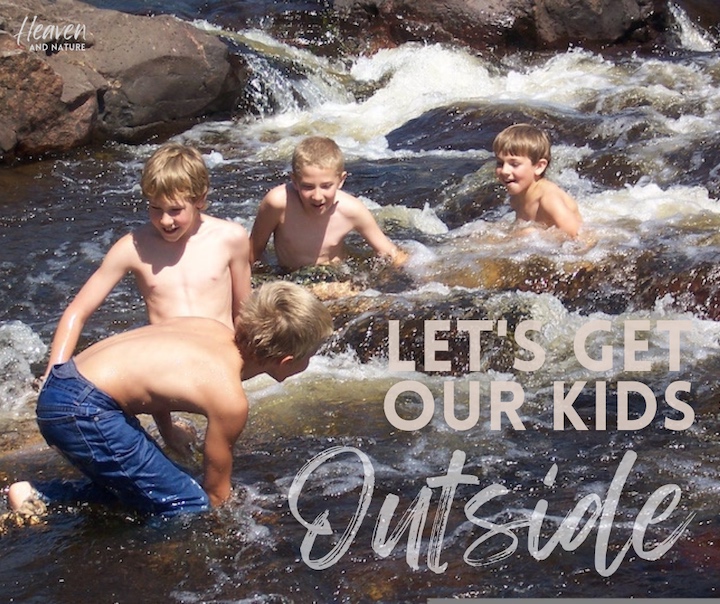
There’s a growing body of research from all over the world on the benefits of active play for children from a very early age on up. And specifically active outdoor play
Benefits Linked to Outdoor Play
- Kids who play outside tend to be more physically active generally which…
- Helps combat obesity all through life
- It helps develop and refine large motor skills, which is especially important in very young children
- Outdoor play doesn’t just help boost physical development, but brain development
- It helps develop confidence…
- Creative problem solving…
- Decision making…
- Outdoor play encourages developing self-regulation and other social skills when playing with others
- Improved mood and emotional well-being
- Active kids are more likely to be active adults
- Most teachers and parents agree that kids who are physically active are both better behaved and better learners in the classroom
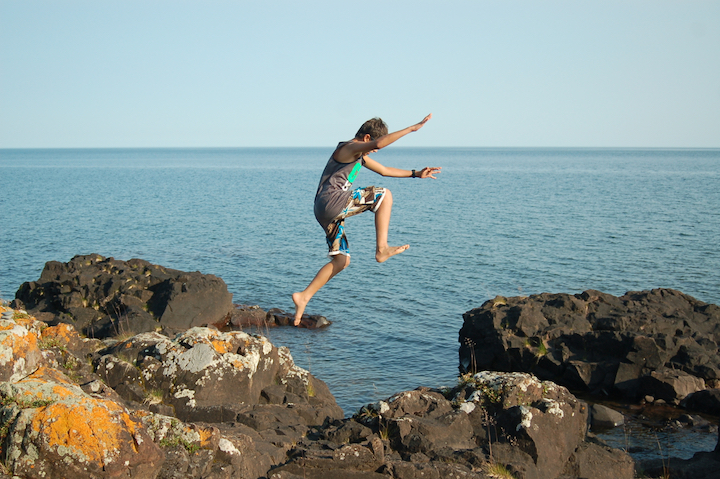
It’s interesting that some of the studies I’ve read discuss the difference between man-made outdoor play areas and natural areas.
Most favor natural areas. Why? Because they’re more likely to include uneven terrain and obstacles that challenge and help develop children’s coordination and problem-solving skills.
The Role of Calculated Risk-Taking
Another very interesting topic is the whole area of risk taking. Some modern societies (like ours) tend towards the false mindset that all risk is negative and to be avoided. Especially if it could lead to physical harm.

Even I tended to be overprotective of my own kids when they were young. And I spent my childhood climbing trees, spending hours on end in the woods alone, running across the rafters in our old barn loft with my siblings, galloping bareback through the fields on a friend’s horse.
As parents, it’s good for us to read things like this:
“…the reality is that the willingness to engage in some risky activities provides opportunities to learn new skills, try new behaviours, and ultimately reach our potential. Challenge and risk, in particular during outdoor play, allows children to test the limits of their physical, intellectual and social development…
“Through exposure to carefully managed risks, children learn sound judgement in assessing risks themselves, hence building confidence, resilience and self-belief — qualities that are important for their eventual independence.”
(Helen Little/Shirley Wyver article, “Outdoor Play: Does avoiding the risks reduce the benefits?” published in Australian Journal of Early Childhood, Vol. 33 No. 2, June 2008, © 2008 Early Childhood Australia Inc.)
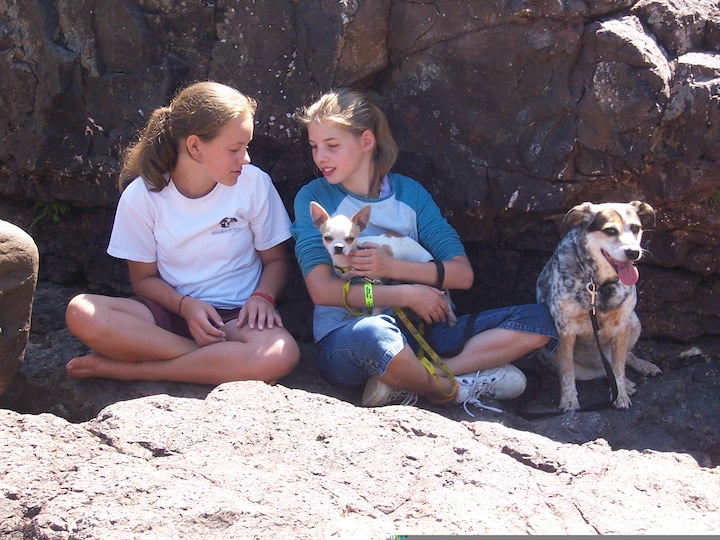
It’s About More than the Obesity Epidemic
While worldwide childhood obesity is a major catalyst behind the above research, to focus on obesity would imply playing outdoors isn’t as important for kids in a normal weight range. That’s entirely false.
(Scroll back up to the list of benefits of outdoor play to review!)
Here’s a statement from the Australian National Association for Sport and Physical Education (from 2006)…
Physical activity guidelines for both toddlers (age 12-36 months) and preschoolers (3-5 years) are:
“…at least 60 minutes and up to several hours per day of daily, unstructured physical activity and should not be sedentary for more than 60 minutes at a time except when sleeping.”
Several hours daily of unstructured physical activity.
I’m not sure why unstructured is emphasized, but it probably has a lot to do with children learning self-autonomy, risk-taking, creativity and social skills.
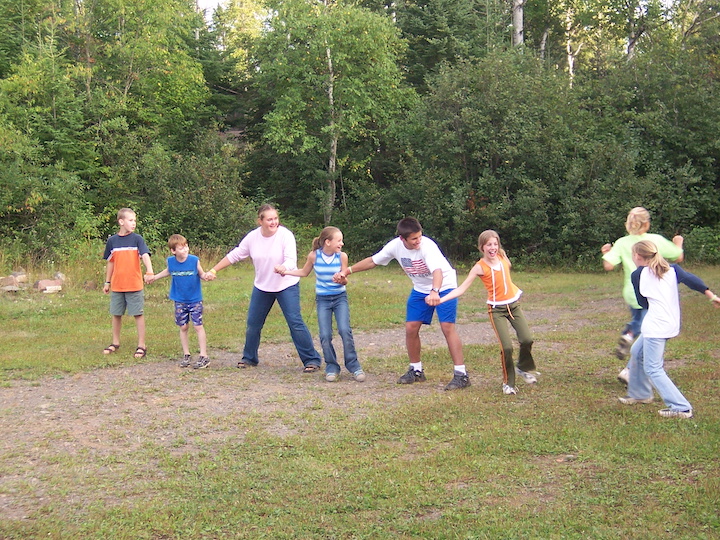
Does your family have time for your young children to play outside for an hour or more every day? If not—and I know many families don’t—is your children’s health important enough to start to make time for this kind of unstructured outdoor play?
Off Screens and Outdoors
When I was growing up we didn’t even have a TV for most of those years. Screens weren’t an issue, and even if we had had one, we would’ve only had a choice of a handful of programming.
As we all know, today’s screen world is one of utter overwhelm, bordering on chaos.
There are some pretty scary statistics out there, like:
- American 8-12 year olds spend, on average, 4-6 hours in front of screens every day.
- Teens spend even more time, up to 9 hours in front of screens. Every. Day.
- The average American kid spends just 4-7 minutes a day in outdoor, unstructured play. That’s not 47, but 4 to 7. Minutes.
Could that be part of why our kids are experiencing epidemic levels of obesity, depression and anxiety?
If you have your own children or grandchildren, do you want to be part of flipping that ratio around? Or at least evening it out a bit?
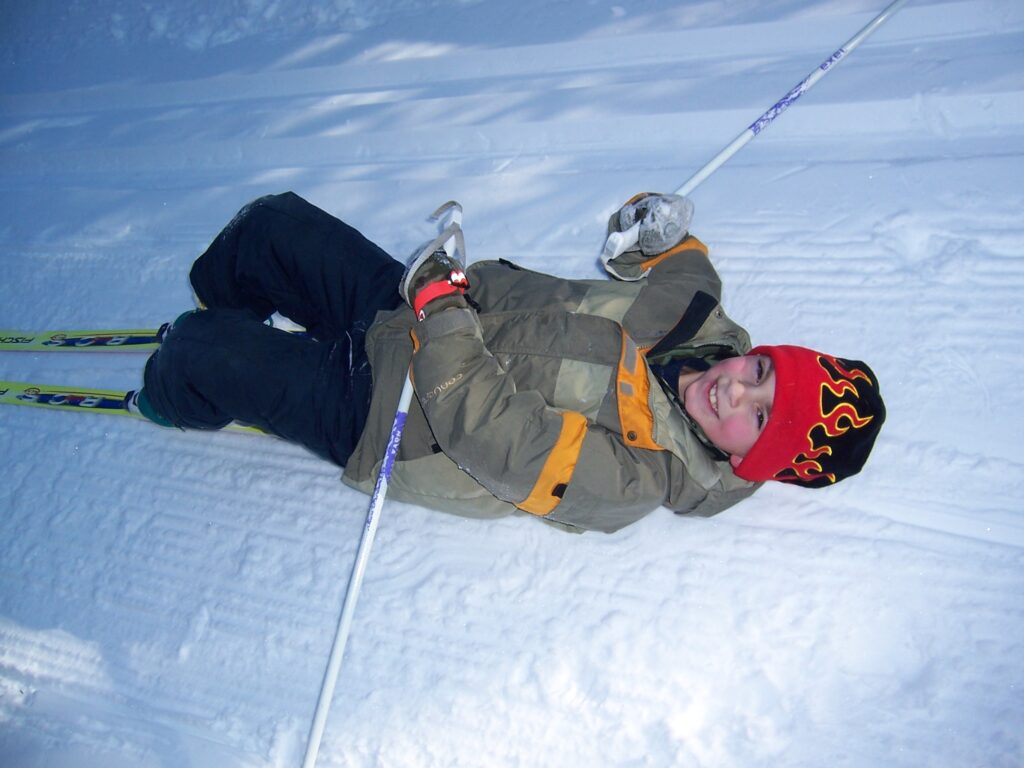
What’s Good Our Kids is Good for Us
So many good, healthy things come from being an active participant in our wonderful natural world. Especially as a family, or with your friend group.
God designed it—and us—that way.
It’s truly amazing…if we’ll take advantage of the wonderful outdoors and glean its many benefits for our kids and ourselves.
Here’s more…
- 11 Wonderful Things in Our Natural World - February 6, 2025
- What Kind of Exercise Is Best? - January 10, 2025
- 116 Verses in the Bible that Talk About Light - December 10, 2024
